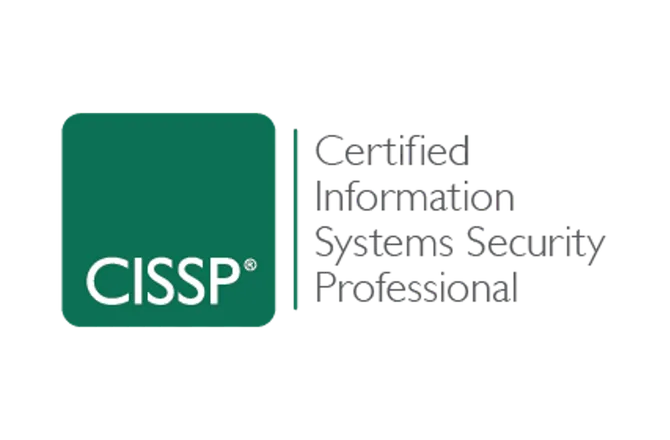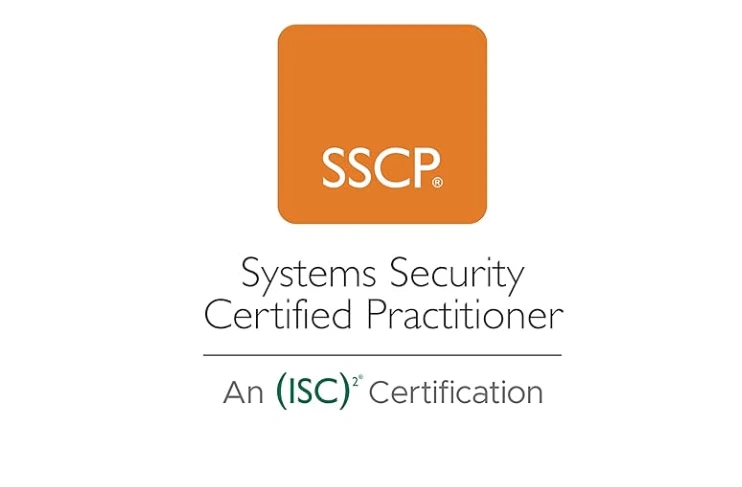Obtain the World’s Premier Cybersecurity Certification certification, the CISSP given by ISC2, provided by SGL.
The International Information Systems Security credential Consortium, or (ISC)2, is the organization that created the Certified Information Systems Security Professional (CISSP) information security credential. A globally recognized, vendor-neutral standard, the CISSP credential attests to the technical proficiency and practical expertise of an IT security professional in designing, executing, and overseeing security programs.
In the information security industry, the CISSP certification is the most widely recognized worldwide. It attests to an information security professional’s in-depth comprehension of the management and technical skills necessary to plan, carry out, and oversee an organization’s whole security architecture.
The scope guarantees that the CISSP Common Body of Knowledge (CBK®) is applicable to all information security disciplines.
The CISSP certification was the first in the information security industry to pass the rigorous ANSI/ISO/IEC Standard 17024 standards.
Objectives
- Risk Control and Security
- Engineering and Architecture for Security
- Management of Identity and Access (IAM)Operations for Security
- Asset Protection
- Network security and communication
- Evaluation and Testing of Security
- Security in software development
CISSP requirements
In addition to passing the certification test, candidates must also complete the CISSP exam agreement, adhere to the (ISC)2 code of ethics, respond to background qualifying questions, and obtain an endorsement from a working (ISC)2 certified professional in order to obtain the CISSP certificate.
Candidates must pay a yearly maintenance fee of $125 and obtain at least 120 Continuing Professional Education (CPE) credits every three years in order to keep their CISSP certification active.
CISSP exam
The six-hour CISSP exam has 250 multiple-choice questions as well as sophisticated, creative questions that assess a candidate’s comprehension of the eight areas of the (ISC)2 Common Body of Knowledge (CBK). The following are the CBK domains:
- Risk and Security Management (15 percent of the test)
- Security of Assets (10%)
- Engineering and Architecture for Security (13%).
- Network security and communication (13%)
- 13 percent for Identity and Access Management
- Security Evaluation and Examination (12%)
- Safety and Security (13%).
- Security of Software Development (11%)
The results are calculated on a scaled score, with a score of 700 or higher out of a 1,000 point maximum required to pass.
Prerequisites
It is strongly advised that candidates have either the Security+® or Network+® certifications from CompTIA, or have similar work experience.
This course is meant for the following people:
• Practitioners with experience in IT security; auditors; consultants; investigators; instructors; network security analysts; engineers; network administrators; information security specialists; risk management experts; career changers.
Course Outline
The course outline includes the following domains:
Security and Risk Management
Asset Security
Security Architecture and Engineering
Communication and Network Security
Identity and Access Management (IAM)
Security Assessment and Testing
Security Operations
Software Development Security
Overview
IT workers greatly value earning the CISSP certification. Employing companies frequently seek applicants who have passed the CISSP test since holders of this certificate need to possess both practical experience and, maybe, formal CISSP training, in addition to having enough cybersecurity knowledge to pass the certification exam.
It takes more than just passing the Certified Information Systems Security Professional certification test to become CISSP-certified. A minimum of five years of full-time, practical expertise in at least two of the eight CISSP domains is needed of candidates.
(ISC)2 suggests the subsequent four-step certification process:
Make sure you are a good fit for CISSP.
2. Sign up and get ready for the test.
3. Obtain your certification.
4. Turn into a (ISC)2
(ISC)2 states that for seasoned cybersecurity professionals, CISSP certification is advised. Candidate jobs include chief information security officer (CISO), chief information officer (CIO), director of security, IT manager, security systems engineer, security analyst, security manager, security auditor, security architect, security consultant and network architect.
Self-study, the use of CISSP practice books and study guides, as well as online practice examinations, may all help with preparation. A lot of applicants also sign up for CISSP training programs in order to get ready for the test.


